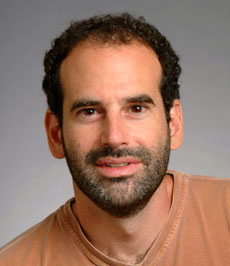Seth Teller, 50, East Cambridge activist famous as robotics professor at MIT
![]()

Seth Teller, an East Cambridge Resident, died Tuesday at 50. (Photo: MIT)
Seth Teller, a neighborhood activist and professor of computer science and engineering at the Massachusetts Institute of Technology, died Tuesday. He was 50. He leaves a wife, Rachel, and two daughters.
In Cambridge, Teller had been trying to keep one Danehy Park playing field as natural grass, was prominent among MIT faculty questioning its building of market-rate commercial buildings on campus land and, most recently, was key to the February founding of the Neighborhood Association of East Cambridge, a group trying to reduce the height of redevelopment at the former Edward J. Sullivan Courthouse in East Cambridge.
“Many of you got to know Seth only recently around the issue of the Sullivan Courthouse, so you got a sense of what a wonderful, thoughtful, brilliant and compassionate man he was. Those of us who were blessed to know him better are in shock at the loss,” resident Michael Hawley said in a Wednesday email.
Teller had been among MIT faculty since 1994, a member of the Department of Electrical Engineering and Computer Science and its Computer Science and Artificial Intelligence Laboratory and led CSAIL’s Robotics, Vision and Sensor Networks group, which aims to enable machines to become aware of their surroundings and interact naturally with people in health care, military, civilian and disaster-relief settings.
His work had a fun aspect as well: He led the MIT team that will compete in the final round of the prestigious DARPA Robotics Challenge, a competition sponsored by the Department of Defense’s Defense Advanced Research Projects Agency to promote innovation in robotics technology for disaster response. The competition calls for a humanoid robot to perform a series of tasks related to a disaster-response scenario.
Last December, the MIT team secured one of 11 prized spots in the final round of the competition planned for June 2015. The team participated in two rounds of competition, beating out more than 100 other teams, to secure a place in the finals. During the latest round of competition, the MIT team had to navigate a humanoid robot through a series of trials including walking, climbing, and handling tools and other objects.
#DARPADRC Team MIT and the ATLAS ! pic.twitter.com/Qf2frWMa3Y
— Seth Teller (@Seth_Teller) July 11, 2013
Teller had also led an MIT team that placed fourth in an earlier DARPA challenge to develop an autonomous car. The finals in the autonomous-car competition took place in late 2007, and the following spring, Teller announced plans to develop an autonomous forklift, which his group demonstrated in 2010.
A native of Connecticut, Teller got his bachelor’s degree in physics from Wesleyan University, in 1985; his master’s in computer science from the University of California at Berkeley in 1990; and a doctorate in computer science from Berkeley, in 1992. He held postdoctoral positions at Hebrew University in Jerusalem and at Princeton University before joining MIT as an assistant professor of electrical engineering and computer science in 1994. He was promoted to associate professor in 1998, received tenure in 2002, and became a full professor in 2007.
“I knew Seth as a person of great human warmth and intellectual intensity,” institute President L. Rafael Reif said in an email to the MIT community. “He was a brilliant engineer and a gifted advisor with a passion for new challenges. His loss is difficult to grasp.”
Residents of Cambridge who knew Teller called his death “a shocking loss” and “terribly sad and devastatingly sudden news.”
This post took significant amounts of material from an MIT News Office press release. A July 3, 2014, update to this story was removed July 4, 2014.

